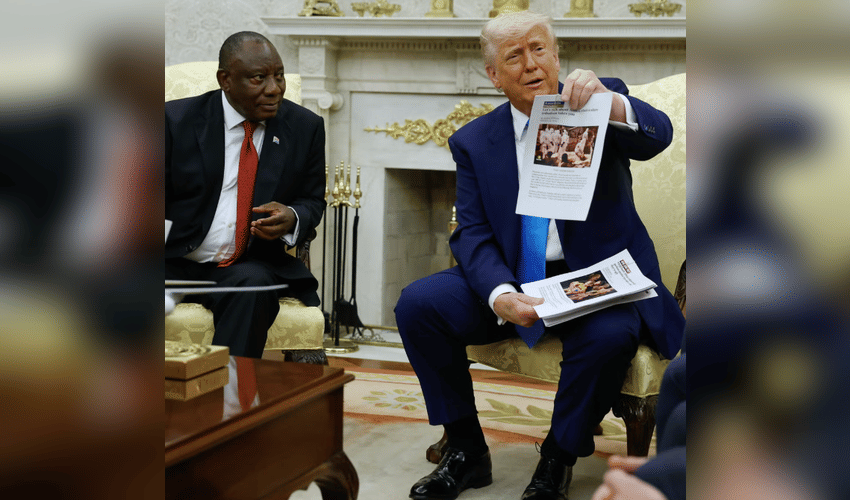World
US Boycotts South Africa G20 Summit Over Alleged Human Rights Abuses Against Afrikaners
Published On Sat, 08 Nov 2025
Avenash Sharma
2 Views

In a striking diplomatic move, the United States has announced a boycott of this years G20 Summit scheduled to be held in South Africa, citing alleged “human rights abuses” against the Afrikaner minority, a white South African community primarily descended from Dutch settlers. The US decision, led by President Donald Trump, comes amid claims that Afrikaner farmers are facing violent attacks, killings, and illegal confiscation of their lands by the South African government—a charge firmly denied by Pretoria.
President Trump described the situation as a “total disgrace” and stated that no US government representative would attend the summit “as long as these human rights abuses continue.” The president underscored his stance by highlighting the plight of Afrikaners whom he said are being “killed and slaughtered” and whose farms are being seized without compensation. This boycott is notable as it represents a rare US diplomatic withdrawal from a major global forum and reflects mounting tensions between the two nations on issues relating to race and land reform in South Africa.
The background of this issue lies in South Africas contentious land reform policies aimed at redressing historical inequalities stemming from apartheid. The government has introduced laws that allow for land confiscation without compensation under certain circumstances, primarily targeting land ownership imbalances that disproportionately favor the white minority. While South Africa argues that these measures are necessary steps toward social justice and economic equity, critics like the US administration interpret them as targeting and persecuting the Afrikaner minority.
South Africas leadership, including President Cyril Ramaphosa, has repeatedly refuted claims of a targeted campaign or “genocide” against white farmers, emphasizing that the violence affecting all South Africans is a broader law-and-order issue rather than racial persecution. Ramaphosa has also engaged in dialogue with US officials to address these misunderstandings and maintain diplomatic relations ahead of the summit.
Looking ahead, the US has expressed eagerness to host the 2026 G20 Summit in Miami, Florida, signaling a shift in venue and possibly tone for the global conference forum. The boycott raises questions about the unity and coherence of the G20, a critical platform for world economic cooperation. It also highlights the sensitive, often polarizing intersection of domestic social policies and international diplomacy in a globalized world.
This development not only impacts US-South Africa relations but also reflects broader geopolitical tensions where minority rights, land reforms, and historical grievances collide with global diplomatic engagements. The outcome of this boycott and its ripple effects on future G20 summits remain to be seen, but it certainly marks a high-profile episode in the ongoing dialogue about justice, equity, and human rights in the 21st century.
Disclaimer: This Image is taken from The Independent.



